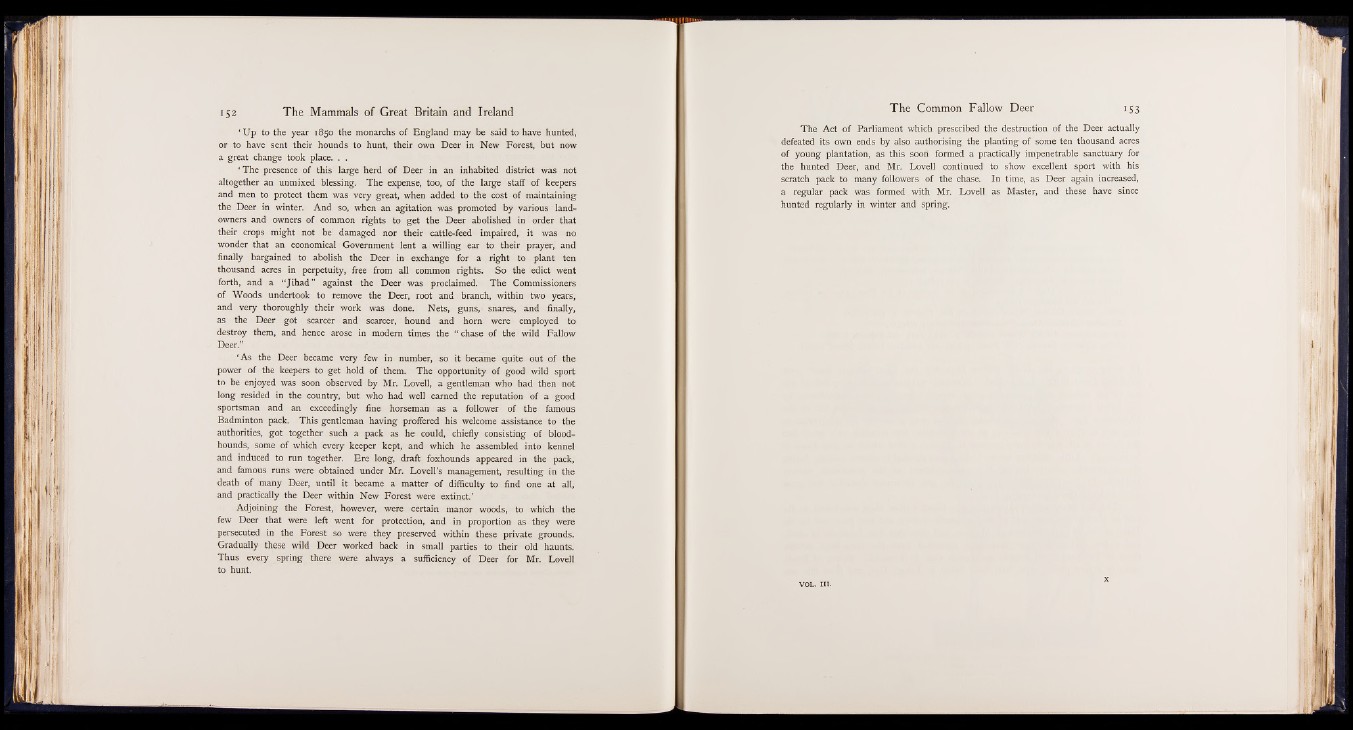
* Up to the year 1850 the monarchs of England may be said to have hunted,
or to have sent their hounds to hunt, their own Deer in New Forest, but now
a great change took place. . .
‘ The presence of this large herd of Deer in an inhabited district was not
altogether an unmixed blessing. The expense, too, of the large staff of keepers
and men to protect them was very great, when added to the cost of maintaining
the Deer in winter. And so, when an agitation was promoted by various land-
owners and owners of common rights to get the Deer abolished in order that
their crops might not be damaged nor their cattle-feed impaired, it was no
wonder that an economical Government lent a willing ear to their prayer, and
finally bargained to abolish the Deer in exchange for a right to plant ten
thousand acres in perpetuity, free from all common rights. So the edict went
forth, and a “Jihad” against the Deer was proclaimed. The Commissioners
of Woods undertook to remove the Deer, root and branch, within two years,
and very thoroughly their work was done. Nets, guns, snares, and finally,
as the Deer got scarcer and scarcer, hound and horn were employed to
destroy them, and hence arose in modern times the “ chase of the wild Fallow
Deer.”
‘ As the Deer became very few in number, so it became quite out of the
power of the keepers to get hold of them. The opportunity of good wild sport
to be enjoyed was soon observed by Mr. Lovell, a gentleman who had then not
long resided in the country, but who had well earned the reputation of a good
sportsman and an exceedingly fine horseman as a follower of the famous
Badminton pack. This gentleman having proffered his welcome assistance to the
authorities, got together such a pack as he could, chiefly consisting of bloodhounds,
some of which every keeper kept, and which he assembled into kennel
and induced to run together. Ere long, draft foxhounds appeared in the pack,
and famous runs were obtained under Mr. Lovell’s management, resulting in the
death of many Deer, until it became a matter of difficulty to find one at all,
and practically the Deer within New Forest were extinct.’
Adjoining the Forest, however, were certain manor woods, to which the
few Deer that were left went for protection, and in proportion as they were
persecuted in the Forest so were they preserved within these private grounds.
Gradually these wild Deer worked back in small parties to their old haunts.
Thus every spring there were always a sufficiency of Deer for Mr. Lovell
to hunt.
The Act of Parliament which prescribed the destruction of the Deer actually
defeated its own ends by also authorising the planting of some ten thousand acres
of young plantation, as this soon formed a practically impenetrable sanctuary for
the hunted Deer, and Mr. Lovell continued to show excellent sport with his
scratch pack to many followers of the chase. In time, as Deer again increased,
a regular pack was formed with Mr. Lovell as Master, and these have since
hunted regularly in winter and spring.
v o l . h i .